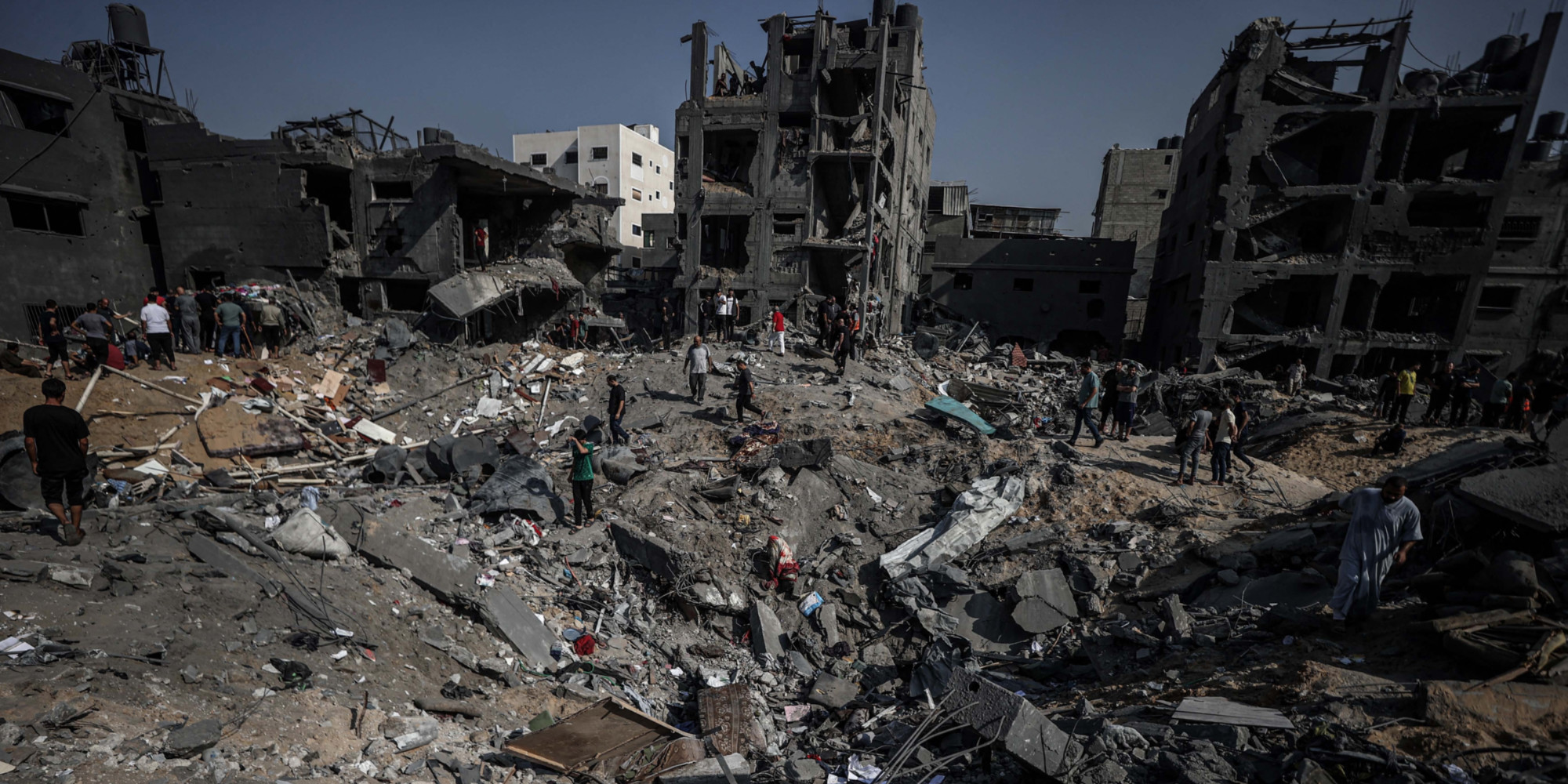Ophélie Artaud / Photo credit: Ali Jadallah / ANADOLU / Anadolu via AFP
modified to
3:54 p.m., November 2, 2023
Did “war crimes” take place in the Gaza Strip? This is what the UN denounces after successive Israeli strikes on the largest refugee camp in Gaza, in Jabalia, to “eliminate” a leader of the terrorist group Hamas, responsible for the attacks of October 7, according to the army of the Hebrew State. The bombings caused “dozens” of deaths, according to Hamas, although this information has not yet been confirmed. But how is a war crime defined?
First of all, armed conflicts are based on international humanitarian law (IHL). This aims to limit the effects of war, particularly on civilian populations. IHL is mainly based on the various Geneva Conventions, and in particular that of 1949, established after the Second World War.
How to define a war crime?
Concretely, a war crime is based on the violation of IHL and can be perpetrated against civilian populations but also against members of an army. The definition retained by the UN is based on the Geneva Convention of 1949 and the Rome Statute of 1998. Already, “war crimes always take place during an armed conflict, international or not”, we can read on THE UN website. The definition will therefore vary if the conflict is international or not, which is the case in the conflict between Israel and Hamas.
In Article 8 of the Rome Statute, intentional homicide, torture, harm to physical integrity or health, destruction and appropriation of property, taking of property are considered war crimes. hostages, but also the fact of intentionally directing attacks against the civilian population or against civilian objects, of attacking or bombarding, by any means whatsoever, towns, villages, dwellings or buildings which are not defended and which are not military objectives, or the fact of intentionally directing an attack knowing that it will incidentally cause loss of life among the civilian population…
It is in particular this last point which is retained by the UN, as the organization writes on “Israeli attacks on the Jabalia refugee camp, we have serious concerns that these are disproportionate attacks that could constitute war crimes.”
#Gaza – Given the high number of civilian casualties & the scale of destruction following Israeli airstrikes on Jabalia refugee camp, we have serious concerns that these are disproportionate attacks that could amount to war crimes. pic.twitter.com/ky2jYVrhJq
— UN Human Rights (@UNHumanRights) November 1, 2023
To qualify as such, a war crime must have a contextual element, in other words, take place in the context of an armed conflict. He must also take into account a psychological element, that is to say ensure the intention and knowledge of the incriminated individual in relation to his act and the context.
Who judges war crimes?
If possible war crimes are identified, investigations can be opened by different institutions, national or supranational. On its website, the UN explains that “national courts generally have a duty to try perpetrators of war crimes”, even if “this may prove impossible during or after the conflict”.
International tribunals are also competent to try war crimes, notably the International Criminal Court (ICC). This can be seized by one of its member states, by one of its prosecutors (subject to authorization from a pre-trial chamber), or by the United Nations Security Council. Other organizations, such as recently theNGO Reporters Without Borders can file a complaint with the ICC, even if the latter has no obligation to take it up.
The only specificity: the perpetrators of war crimes must absolutely be judged in a country other than that where the actions were committed, as defined by the Geneva Convention.
For the moment, investigations have been opened by the ICC for possible war crimes committed in Israel during the October 7 attacks, but also in Gaza and the West Bank.
What is the difference with crimes against humanity?
Unlike war crimes, crimes against humanity are not necessarily linked to armed conflict and can also occur in peacetime. These are, according to the definition of Article 7 of the Rome Statute, “acts committed as part of a widespread or systematic attack launched against any civilian population”. It may involve murder, extermination, slavery, deportation of a population, torture, rape and sexual violence… These acts do not target a particular population, unlike genocide, and can concern an entire civilian population.
Also, only certain States which have placed it in their criminal law and the ICC can sanction crimes against humanity.
